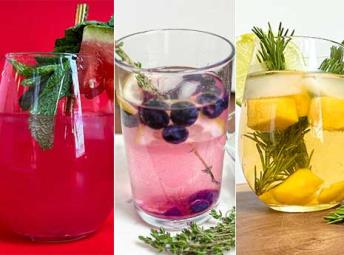One study, via a number of blood tests, compared the effects of moderate-GI rolled oats, high-GI puffed rice or a control (plain water) on endurance athletes. The subjects ate a meal with 75 grams of carbohydrate from the test food 45 minutes before performing a cycling exercise to exhaustion. The lower-GI oats resulted in lower glucose at the start of exercise, but sustained higher glucose throughout the cycling exercise, indicating more glucose available to the muscles when it counted. Time to exhaustion was longer on the rolled-oats meal compared to the high-GI rice, or the control.
More: 3 No-Sweat Oatmeal Recipes for Athletes
What can you eat to take advantage of the low-GI effect? Here are some important considerations for choosing lower GI foods:
- GI scoring is not at all complete. It's an expensive process, and so far has been done mostly with simple, unprocessed foods. Mixed foods, from commercial products to home recipes, have not been tested.
- Most sports products—gels, blocks, shots, bars, drinks—are intended for use during activity. The carbohydrate energy will be more readily available. While this means the products are likely high GI, it's impossible to know for sure, unless they've officially been assessed for a GI score. Foods tested by the Glycemic Index Foundation will have a low GI icon. This is a voluntary program, and food companies may not bother paying for this service.
- The GI score depends on eating 50 grams of carbs from the food. If you eat less of that food, glucose won't increase as much. You may always have good results eating a supposedly high-GI food because you eat less of it and combine it with moderate GI foods. The end result is a moderate GI effect.
- The foods an athlete tolerates or likes, as well as the amounts, are specific to the individual. One athlete's low-GI oatmeal may not sit well with another athlete. Some people may feel they benefit from some high-GI carbs, or more or less fat or protein.
- The research on glycemic index and sports performance is incomplete. While there is evidence of a benefit from moderate-GI foods before an event, more research is needed to identify specific foods that give the best results for fuel availability.
More: 5 Common Pre-Race Nutrition Blunders
Here are some examples of moderate GI foods that might work as pre-event foods for athletes:
Moderate-GI Scores (60 to 85)
- Oatmeal: season with dried fruit for best effect.
- Cooked pasta: you can season it simply with grated Parmesan.
- Brown rice: eat a bowl of cooked rice, perhaps seasoned with soy sauce.
- Sweet potato: eat a baked sweet potato or saut? some slices of pre-cooked sweet potato.
- Orange juice: might be hard on your stomach without some food to go along with it, such as toast.
- Certain fruits like grapes, mango, banana and kiwi.
- Whole wheat bread: have some toast with your orange juice.
- Corn tortillas: make a small soft taco with beans and a dash of cheese.
- Dark chocolate: while plain dark chocolate isn't likely to be something an athlete eats by itself before an event, it can be a flavoring in other foods. The Glycemic Index Foundation lists plenty of chocolate products as moderate GI, including chocolate-flavored soy milk, chocolate muffins and chocolate ice cream. And there's the moderate-GI Snickers bars. Obviously, these types of foods will be a very individual choice.
- Energy bars: even without official GI testing, bars that have some protein and fat content, with a minimum of added sugar are likely moderate GI. Bars that are primarily puffed cereal held together with sugar syrup, frosting and candy bits are likely high GI. Stick to oat and whole grain-based bars with dried fruit and nuts.
- 2
- of
- 3
About the Author








Discuss This Article